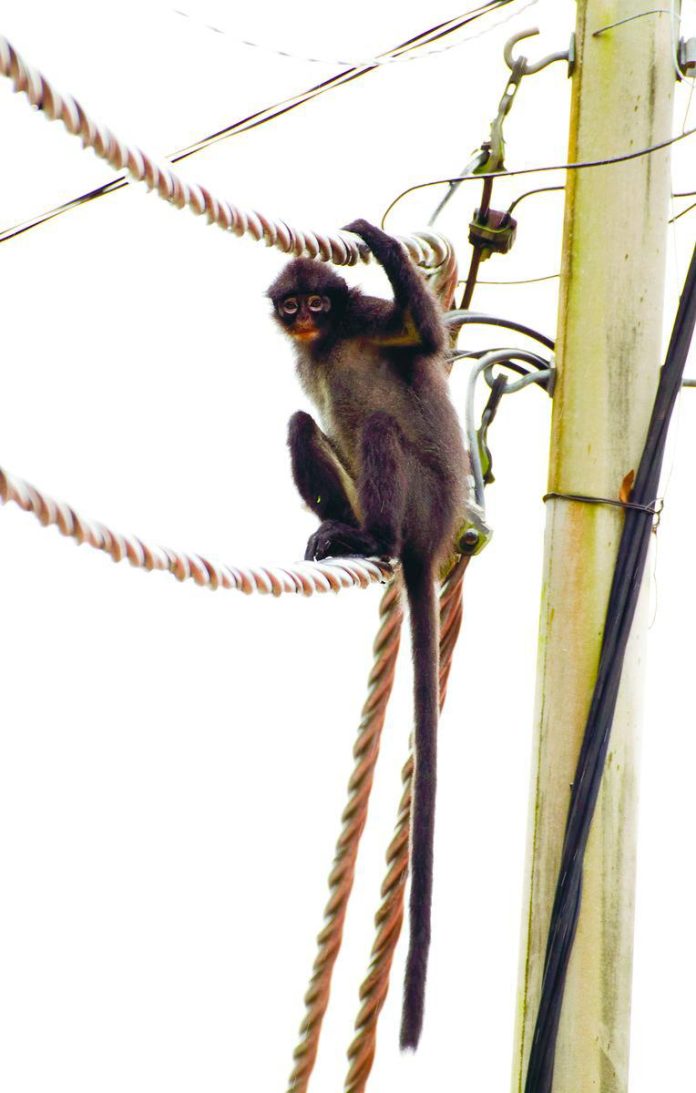PETALING JAYA: As Malaysia observes Endangered Species Day today, a conservationist is calling on the public to shift focus from iconic wildlife such as tigers and orangutans to a critically endangered primate that many Malaysians have never heard of – the Raffles’ Banded Langur.
Known scientifically as Presbytis femoralis, this sleek black monkey with distinct white thigh stripes is now one of the most threatened primates in the region.
Once widespread across southern Peninsular Malaysia and Singapore, its numbers have plummeted due to rampant habitat loss and fragmentation, said Universiti Sains Malaysia academic and Malaysian Primatological Society vice-president Assoc Prof Dr Nadine Ruppert.
“Today, fewer than 70 individuals remain in the wild in Singapore,” she said.
“In Malaysia, the numbers are unclear but estimated to be between 200 and 300, mostly in fragmented forest patches across Johor and Pahang.”
In Johor, the langurs are scattered across isolated habitats, including Endau Rompin National Park, Gunung Arong, Gunung Belumut, Gunung Lambak, Gunung Panti, Gunung Pulai and Kampung Johor Lama.
In Pahang, only two populations have been recorded in Rompin State Park and the Pekan Peat Swamp.
Habitat isolation presents an equally serious threat.
Small, disconnected populations face difficulty in breeding, which weakens genetic diversity and jeopardises long-term survival.
Despite its critically endangered status, the Raffles’ Banded Langur is notably absent from Malaysia’s national conservation agenda.
“Conservation here has long centred on flagship species such as orangutans, elephants and tigers,” said Nadine. “There is very little media coverage or public engagement for lesser-known primates.”
But these primates play a vital role in the ecosystem.
As seed dispersers, they contribute to forest regeneration, supporting plant diversity and ensuring healthy, resilient ecosystems.
“Losing primates would have serious ecological repercussions,” Nadine said.
“Without them, forest regeneration suffers, biodiversity shrinks and food chains unravel.”
These imbalances can also heighten human-wildlife conflict as displaced primates enter human settlements in search of food and shelter.
To prevent the “silent extinction” of Malaysia’s lesser-known primates, Nadine urged swift action from both policymakers and the public.
She emphasised that habitat loss remains the main threat.
“Protecting existing forests, expanding protected areas, and restoring degraded land is essential to securing safe habitats.”








